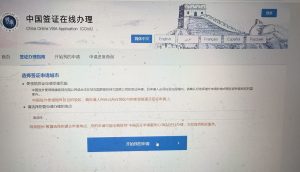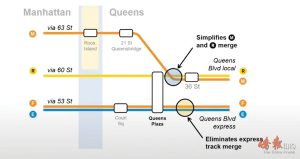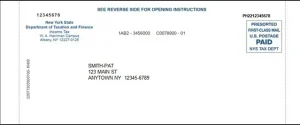Zong Qinghou’s 10 billion yuan family trust mystery: Why can’t the asset isolation function prevent the “cross-border” transfer of $1.1 million? Is the will true or false?

A year and a half after the death of business legend Zong Qinghou, the peace of Wahaha Group was completely broken.
According to media reports, in July 2025, the Hong Kong High Court received an application numbered “HCMP ****/2025”: three American youths, Jacky Zong, Jessie Zong, and Jerry Zong, requested to freeze the $1.8 billion in the HSBC account under the name of Wahaha Chairman Zong Fuli, and to pursue the $2.1 billion (about 15 billion yuan) offshore trust rights promised by her father Zong Qinghou before his death.
It is worth noting that as of May 2024, about $1.1 million had been transferred out of the HSBC account. The plaintiff’s lawyer said that Zong Jichang and the other three were trying to prevent Zong Fuli from disposing of, handling or devaluing the value of the assets in the account.
Recently, the three plaintiffs and Zong Fuli have started litigation in the courts of Hong Kong and Hangzhou on the issue of asset inheritance. Among them, the focus of the Hong Kong court’s dispute is on the family trust assets worth US$2.1 billion, while the core of the Hangzhou court’s game revolves around the inheritance rights of equity worth more than 20 billion yuan.
Family Trust Dispute
The plaintiff’s lawsuit made the secret asset map of US$2.1 billion public.
According to media reports, the plaintiff claimed in the lawsuit that in 2003, Zong Qinghou instructed his subordinates to set up a US$2.1 billion offshore trust at HSBC Bank in Hong Kong, with three illegitimate children as the beneficiaries, and agreed that each of them would have an asset of US$700 million in their name. However, due to insufficient funds at the time, the trust was only partially funded, and the remaining funds had to be gradually supplemented through dividends from the Wahaha Group.
As of early 2024, the balance of the account was approximately US$1.8 billion. Legal documents show that as of May 2024, approximately US$1.1 million had been transferred out of the account. The plaintiff’s lawyer said that Zong Jichang and three others were trying to prevent Zong Fuli from disposing of, handling or devaluing the value of the assets in the account.
Zong Fuli emphasized that the funds in the account involved were actually reserves for the expansion of the Southeast Asian market. Zong Fuli’s legal team submitted a 2023 overseas business budget report to the Hong Kong court, proving that the transfer of $1.1 million was used to pay the balance of the Vietnamese factory equipment.
It is worth noting that a key and puzzling question lingers in everyone’s mind: If the family trust claimed by the plaintiff has long been legally established, why can the corresponding account funds be transferred out so easily?
Under normal circumstances, family trusts have rigorous asset isolation and protection mechanisms, and the use and transfer of funds should be strictly restricted and supervised.
Trust practitioner Berto analyzed to the reporter of “Huaxia Times” that family trusts have the function of privacy protection. At present, public information does not seem to be disclosed in detail. Assuming that the trigger conditions for the distribution of trust benefits are set at the beginning of the establishment of the family trust, it is normal to transfer funds if the conditions are met. For example: the trigger condition is that Zong Fuli needs to use the benefits distributed by the trust to run the business, which fully meets the requirements and can reasonably and legally transfer funds.
“Another possibility is that if the contract stipulates that if the client dies, Zong Fuli has great decision-making power over changing the contract and the distribution of trust benefits. For example, Zong Fuli is given the role of supervisor and given great power, such as investment veto power and trust benefit distribution approval power. In this case, the transfer of funds is also handled in accordance with the contract.” Berto analyzed.
In the view of Gao Huiyun, executive director of the Family Trust Legal Affairs Center of Beijing Kyoto Law Firm, there is currently limited public information, and it is not clear whether the trust is established, and whether Zong Fuli has control over the trust.
“It feels that although this fund is called a trust, it is not clear who the trustee is. It is very likely that the trust has not been truly established, and it is not a question of whether the trust is valid.” Gao Huiyun said in an interview with a reporter from the China Times that more details are currently very unclear. If it is a real family trust, Zong Fuli cannot directly withdraw it, or the trustee of the trust may also be a company. The phenomenon of unauthorized disposal of trust assets reflects a key issue, that is, under the premise of assuming that the trust is effectively established, there may be a lack of effective supervision mechanism or loss of its due standardized operation.
“In the standardized operation of trusts, trust property should be strictly supervised to ensure that it is used in accordance with the purpose of the trust and to protect the rights and interests of the beneficiaries. However, in this case of property dispute, the trust funds seem to be able to be transferred out at will, and the trustee’s management is not in place. This shows that there may be no effective supervision measures, or the supervision measures have failed to play their due role. A trust without supervision is like a wild horse without a bridle, which can easily deviate from the original intention of the client. Funds may be misappropriated, resulting in the shrinkage of trust assets and damage to the interests of the beneficiaries.” Wang Shuaifeng, a lawyer at Beijing Kyoto Law Firm, analyzed.
It should also be noted that in the face of the plaintiff’s accusations, Zong Fuli’s legal team presented the will signed by Zong Qinghou in 2020, which clearly stated: “All my overseas assets will be inherited by my only daughter Zong Fuli, and other children shall not claim any rights.” However, the witnesses of the will were senior executives of the Wahaha Group, but no family members were present.
Wang Shuaifeng said that when the witnesses of the will were only senior executives of the group and there was no witness of family members, its authenticity and effectiveness were questioned by the plaintiff. The trust rights claimed by the plaintiffs conflict with this will. From a legal perspective, assuming that the trust is established in accordance with the law and the plaintiffs are designated as beneficiaries, they can still claim the rights related to the trust even if it is not mentioned in the will; but if the trust is not established, or the property is not actually transferred to the trust account, it will be regarded as Zong Qinghou’s estate and will be subject to the restrictions of the effective will.
“In some similar cases, the court will make a ruling based on a comprehensive consideration of the time when the trust was established, whether it complies with the legal form, the authenticity of the will, and the true intention of the parties.” Wang Shuaifeng said frankly.
Considering that the three plaintiffs filed parallel lawsuits in the Hangzhou court at the same time, the Hong Kong judge cautiously expressed the need to avoid conflicting rulings and announced a two-month postponement of the judgment.
There is a difference between inside and outside
The so-called family trust refers to a trust business in which a trust company accepts the entrustment of the client and provides customized business management and financial services for the client’s wealth management needs.
However, there are significant differences between domestic and overseas family trusts in terms of both legal systems and specific operations.
“Hong Kong’s legal system belongs to the Anglo-American legal system, with case law as its core, emphasizing that judges create legal rules through case law in judicial practice. The trust system is different from the mainland’s trust system based on continental law.” Berto said that Hong Kong trust trustees can be of many types, such as banks, trust companies, insurance companies, law firms, tax offices and even individuals (natural persons), while mainland commercial trusts can only be entrusted by trust companies (trust licensed institutions) as trustees, so that they can be strictly supervised.
Wang Zhongwang, from the Family Trust Division of a trust company in the west, also said that foreign civil and commercial legislation respects the autonomy of the parties more. If the trustee has high requirements for the risk isolation function of the family trust, the trustee must give up the right to control the trust property as much as possible in the trust document signed with the trustee, and even the right to designate or adjust the beneficiaries, and transfer the four major powers of possession, use, income and disposal of the entrusted property to the trustee in full, so-called “leaving less power means more protection”.
“But this is not the case with domestic family trusts. According to the Trust Law, the trustee has the right to know about the management and use of trust property, the right to adjust the management methods of trust property, the right to revoke the trust property disposal behavior, and the right to dismiss the trustee. The exercise of these statutory rights by the trustee does not lead to the loss of independence of the trust property, and the trust still has the function of risk isolation.” Wang Zhongwang said.
In China, with the continuous improvement of customer asset allocation diversification and personalized needs, since Ping An Trust landed the first family trust in the industry, the scale of my country’s family trust business has grown from zero to 100 billion yuan in 7 years, and from 100 billion yuan to 350 billion yuan in only 3 years, showing a high-speed growth trend.
At the same time, innovation in family trust business is also constantly advancing. In terms of asset categories, it has gradually changed from traditional non-standard products to a diversified combination of “non-standard + standard products”, covering non-standard trust products, public funds, private equity funds, bank wealth management, etc.
At present, in terms of the types of trust property of family trusts, they are mainly divided into capital assets, financial product beneficiary rights, income rights, insurance policy assets, equity assets, real estate and alternative assets (such as jewelry, antiques, and artworks). Among them, capital, financial product beneficiary rights and insurance policy assets are common trust assets.
From the perspective of cooperation models, commercial banks are currently actively working with trust institutions to deploy family trusts in the private banking field, developing in a more professional and refined direction, and focusing on building differentiated brand core competitiveness.
“In the future, as domestic customers and markets mature, the customer base of family trusts will continue to expand, and customers will have an increasing demand for the inheritance of various types of assets such as stocks and equity, and there will be more and more cases of equity assets as trust property.” Berto pointed out that after Beijing, Shanghai and other places successively launched relevant pilot registration policies, it has brought hope for breakthroughs in this field. In the future, the inclusion of real estate in family trusts is also expected to release huge market space.
![]()







